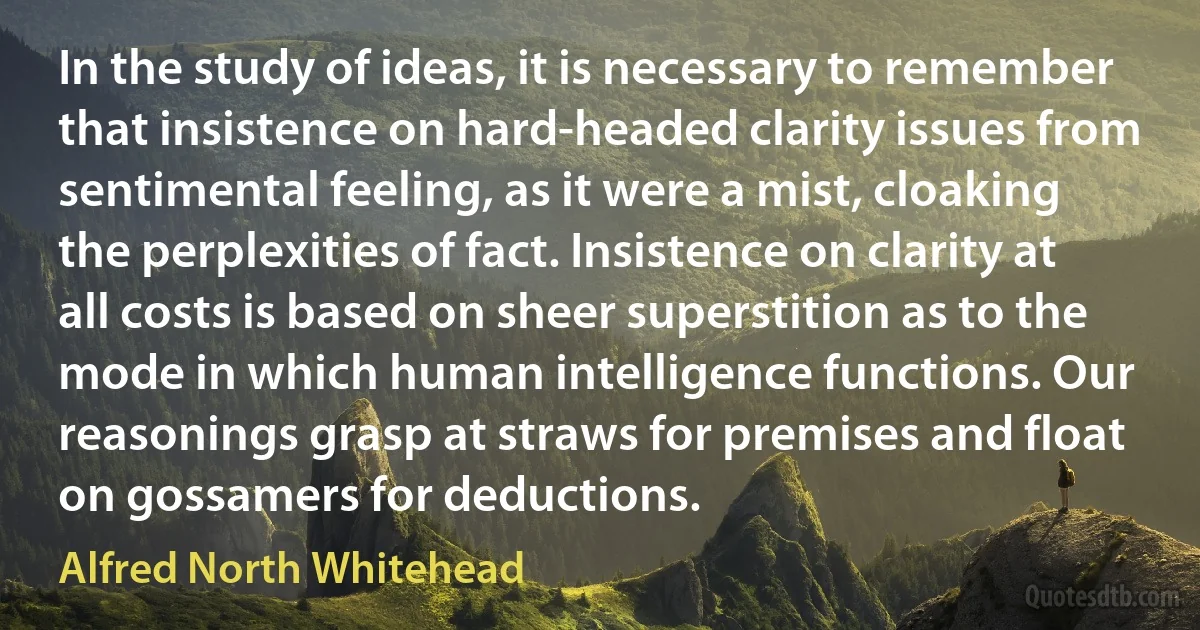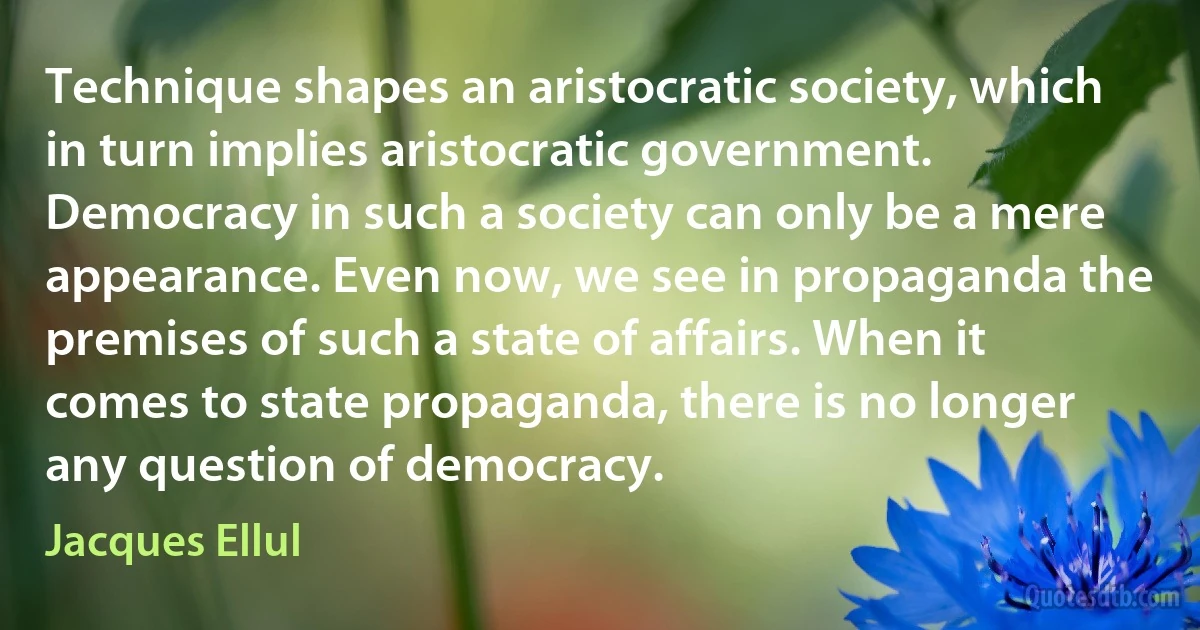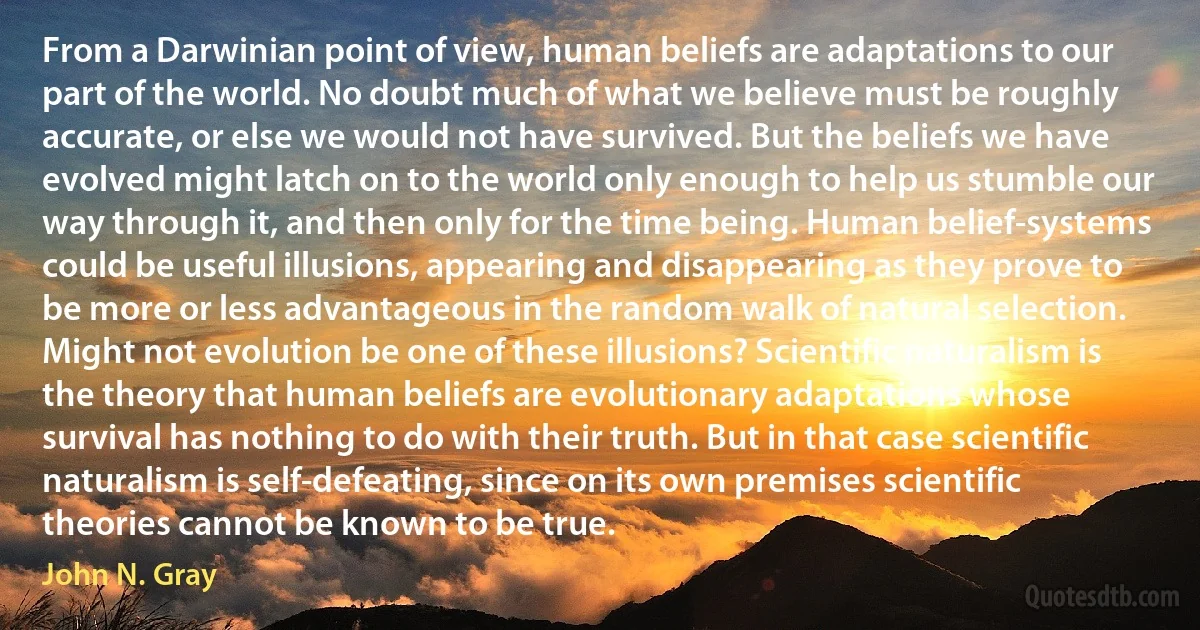Premises Quotes - page 2
The Beer Shops licensed to have the Beer drunk on the Premises, are a Pest to the Community. They are Haunts of Thieves and Schools for Prostitutes. They demoralize the lower Classes. I wish you would turn your mind to consider Whether this Evil could not be abated. That Beer should be sold like anything Else, to be taken away by the Purchaser to be consumed at Home is most reasonable and the more People are enabled so to supply the labouring Classes the better, but the words "licensed to be drunk on the Premises” are by the common People interpreted as applicable to the Customers as well as to the Liquor, and well do they avail themselves of the License.

Henry Temple, 3rd Viscount Palmerston
How can we judge fairly of the characters and merits of men, of the wisdom or folly of actions, unless we have . . . an accurate knowledge of all particulars, so that we may live as it were in the times, and among the persons, of whom we read, see with their eyes, and reason and decide on their premises?

William Wilberforce
I cannot see why it is necessary that every deduction from algebra should be bound to certain conventions incident to an earlier stage of mathematical learning, even supposing them to have been consistently used up to the point in question. I should not care if any one thought this treatise unalgebraical, but should only ask whether the premises were admissible and the conclusions logical.

Augustus De Morgan
I make that --- twice now, on a Monday I let returning Iraqi injured soldiers come to the premises. The most beautiful people I've ever seen. But they're missing arms and legs, they're with their wives, sometimes they're with their girlfriends. And the tears are coming down the faces of these people. I mean, thousands and maybe hundreds of thousands, and the Iraqis that have been just maimed and killed. This war is a horrible thing. Now, President Bush says he's religious. And yet 400,000 people, the way I count it, have died, and probably millions have been badly maimed and injured. What's going on? What's going on? And the day we pull out it's going to explode. We're keeping the lid on a little bit. It's still a catastrophe, but the day we pull out, because they're in a civil war. Whether we want to admit it or not, they're in a civil war.

Donald Trump
There are here two assumptions about 'evaluations ', which I will call assumption (1) and assumption (2). Assumption (1) is that some individual may, without logical error, base his beliefs about matters of value entirely on premises which no one else would recognise as giving any evidence at all. Assumption (2) is that, given the kind of statement which other people regard as evidence for an evaluative conclusion, he may refuse to draw the conclusion because this does not count as evidence for him.

Philippa Foot
Whenever logical processes of thought are employed - that is, whenever thought for a time runs along an accepted groove - there is an opportunity for the machine. Formal logic used to be a keen instrument in the hands of the teacher in his trying of students' souls. It is readily possible to construct a machine which will manipulate premises in accordance with formal logic, simply by the clever use of relay circuits. Put a set of premises into such a device and turn the crank, and it will readily pass out conclusion after conclusion, all in accordance with logical law, and with no more slips than would be expected of a keyboard adding machine.

Vannevar Bush
Old Peter Beswick was a coal merchant in Eccles, Lancashire. He had no business premises. All he had was a lorry, scales, and weights. He used to take the lorry to the yard of the National Coal Board, where he bagged coal and took it round to his customers in the neighbourhood. His nephew, John Joseph Beswick, helped him in his business. In March 1962, old Peter Beswick and his wife were both over 70. He had had his leg amputated and was not in good health. The nephew was anxious to get hold of the business before the old man died. So they went to a solicitor, Mr. Ashcroft, who drew up an agreement for them.

Alfred Denning, Baron Denning
We tend to believe the premises because we can see that their consequences are true, instead of believing the consequences because we know the premises to be true. But the inferring of premises from consequences is the essence of induction; thus the method in investigating the principles of mathematics is really an inductive method, and is substantially the same as the method of discovering general laws in any other science.

Bertrand Russell
And, what is worse, the reader often shares the writer's prejudices, and is far too well pleased with his conclusions to examine either his premises or his reasoning. Stand on a barrel in the streets of Bagdad, and say in a loud voice, 'Twice two is four, and ginger is hot in the mouth, therefore Mohammed is the prophet of God', and your logic will probably escape criticism; or, if anyone should by chance criticise it, you could easily silence him by calling him a Christian dog.

A. E. Housman
In spite of all the foregoing, there is a science of economics, a true, and even exact, science, which reaches laws as universal as those of mathematics and mechanics. The greatest need for the development of economics as a growing body of thought and practice is an adequate appreciation of the meaning, and the limitations, of this body of accurate premises and rigorously established conclusions. It comes about in the same general way as all science, except perhaps in a higher degree, i. e., through abstraction. There are no laws regarding the content of economic behavior, but there are laws universally valid as to its form. There is an abstract rationale of all conduct which is rational at alt, and a rationale of all social relations arising through the organization of rational activity.

Frank Knight
The 'open' mind of the poet and artist can sense realities beyond the reach of our normal senses. The real problem is that our materialistic assumptions have a number of false premises built into them: it is only when we recognize this that we see there is no sharp dividing line between the everyday world and the invisible world of the clairvoyant.

Colin Wilson
Sometimes, the only way to learn something really well is to revert to the state of mind of a novice and reawaken to the raw observations that you have accumulated instead of relying on the conclusions you have reached from the exogenous premises absorbed through teaching and bookish learning.

Erik Naggum
To allow opposition by speech seems to indicate that you think the speech impotent, as when a man says that he has squared the circle, or that you do not care whole-heartedly for the result, or that you doubt either your power or your premises. But when men have realized that time has upset many fighting faiths, they may come to believe even more than they believe the very foundations of their own conduct that the ultimate good desired is better reached by free trade in ideas -that the best test of truth is the power of the thought to get itself accepted in the competition of the market, and that truth is the only ground upon which their wishes safely can be carried out. That at any rate is the theory of our Constitution.

Oliver Wendell Holmes Jr.
God, I have said, is the fulfiller, or the reality, of the human desires for happiness, perfection, and immortality. From this it may be inferred that to deprive man of God is to tear the heart out of his breast. But I contest the premises from which religion and theology deduce the necessity and existence of God, or of immortality, which is the same thing. I maintain that desires which are fulfilled only in the imagination, or from which the existence of an imaginary being is deduced, are imaginary desires, and not the real desires of the human heart; I maintain that the limitations which the religious imagination annuls in the idea of God or immortality, are necessary determinations of the human essence, which cannot be dissociated from it, and therefore no limitations at all, except precisely in man's imagination.

Ludwig Andreas Feuerbach
It would be better, I think, for the man who really seeks the truth not to ask what the poets say; rather, he should first learn the method of finding the scientific premises that I discussed in the second book; then he should train and exercise himself in this method; and when his training is sufficiently advanced, then, as he approaches each particular problem, he should enquire into the premise needed for proving it, which premise he should take from simple sense-perception, which from experience, whether drawn from life or from the arts, which from the truths clearly apprehended by the mind, in order to draw out from them the desired conclusion.

Galen
Perhaps this is an obvious point, but the democratic postulate is that the media are independent and committed to discovering and reporting the truth, and that they do not merely reflect the world as powerful groups wish it to be perceived. Leaders of the media claim that their new choices rest on unbiased professional and objective criteria, and they have support for this contention in the intellectual community. If, however, the powerful are able to fix the premises of discourse, to decide what the general populace is allowed to see, hear, and think about, and to "manage” public opinion by regular propaganda campaigns, the standard view of how the system works is at serious odds with reality.

Noam Chomsky



